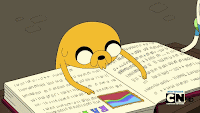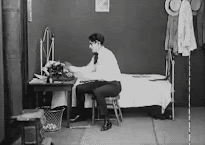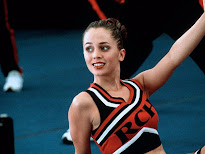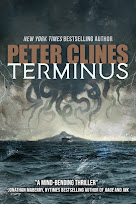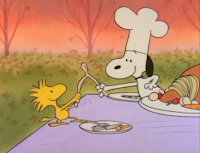I don’t know if you can tell from that side but holy crap is the new Blogger a mess on this side.
I’ve been threatening to talk about endings for a while now. Shouldn’t be that big a deal, right? Easy topic.
One thing all of our books and stories and screenplays have in common is an ending. They’re going to be different for all of us, and for all of our different projects, but everyone of them has an end. Even if it’s part of a series, this discrete part of that overall story has concluded and another part will (hopefully) begin at some other time. Hopefully on the sooner side
Endings come in all shapes and sizes. They can be happy. They can be semi-positive. They can be ambiguous. They can be blunt. They can tease more potential story or be very, very clear this is the end.
But one way or another… the story ends.
We don’t talk much about the fact that there are different types of endings. Not just in that happy-sad-ambiguous sense. In a structural, nuts and bolts sense. There’s also the type of ending where I think I might get to do another book someday, the ending where I know I’m going to get another book immediately, and the ending where I know that this is it, we’re done. Just to name a few.
Also, before I go much further, I’m going to toss around some terms here and I think some of them get used in very general, catch-all ways a lot of the time. Which I also think is what causes some of the issues I’m blathering on about. So some of my blathering may go against things you’ve been taught or picked up here and there.
That said, let’s lean into television for a moment. Yeah, I know most of you aren’t here for screenwriting, but I think this is a good, universal reference point. You should all understand what I’m talking about.
There’s a certain class of network show that tends to have what we might think of as a respawn point most of the time. No matter what’s happened, no matter what the characters have gone through, by the end of the episode they’re pretty much right back where they began—physically and emotionally. They’ve reset for new stories next week. We see this in a lot of sitcoms and even some one hour dramas.
There are also shows that have season arcs, with story elements that carry through from episode to episode. A lot of these end on dramatic revelations or beats that aren’t quite cliffhangers, but still compel the audience to think about what’s going to happen next.
What’s that? Why aren’t they cliffhangers? Good question. This is just my own musings, granted, but I think the big difference between a cliffhanger and a dramatic ending is where they compel us to pick things back up next time. What does the audience/reader need to see next? So it’s a structural, framing difference. If I’ve got a cliffhanger, the next chapter/episode/issue/book needs to begin right here, right at this moment where we left off. With a dramatic ending… the story can resume a little later. We’ve all seen this. “Three hours later, his mind was still reeling from this new information…”
Again, this is just my take, but I think it’s a take that hold up pretty well. And I’ve experienced the jarring results when someone sets up a cliffhanger, but then just treats it as a dramatic ending when the story resumes. Or doesn’t resume. Because if it doesn’t resume, that kinda kills the whole “needs to resume” aspect of it, doesn’t it?
I think it’s also worth noting that a lot of newer, bingeable content is created to be seen as one ongoing story. Each episode still has an ending, but they’re structured very deliberately to line right up with the next episode, more like act breaks than episode conclusions. These shows tend to have really powerful season finales, because that’s the ending that really matters—the one that makes us come back for next season.
And, as I mentioned above with books, there are the endings that imply the potential for more story if the opportunity arises (“hey, we don’t know if we’re renewed yet so just in case…”) and the ones that wrap everything up nice and tight. They all lived happily ever after.
Why am I blathering on about all of this?
Hopefully it’s clear that the type of ending I have—structurally–should give the reader a sense of what comes next. And what doesn’t come next. Again, this is an ending, which means… something should end.
That doesn’t mean I just stop typing. But I’ve seen that plenty of times in books and on some shows, and even a few movies. Things just… stop. The werewolves lunge down the street, our heroes raise their swords and shotguns to fight and wait why is the next page blank.
This is why I’ve been going back and forth with this for so many weeks. It’s tough to talk about endings because each one’s going to be unique to that story and that writer. I can’t say “Don’t do X” when X might be exactly what need to happen in your particular story. A lot of it is going to come down to each of us looking at our story with an honest, critical eye.
Let me toss this out, and then I’ll ramble on a little more. Have I actually ended my story? Or have I just stopped telling it? They’re not the same thing, and if I don’t realize that… well, that’s probably a bit or a red flag right there.
I think one thing we need to do, as writers, is make sure we’ve finished our stories. If my book is about a chosen one accepting his destiny and fighting the manifestation of pure evil… well, by the end of my book he should’ve accepted his destiny and fought the manifestation of pure evil. If my story is all about the school valedictorian desperately wanting to ask out the head cheerleader… at the end of the story she should’ve asked out the cheerleader. This is basic, three-act structure stuff. Once I’ve set up conflict, I need to resolve that conflict. If I don’t… I’ve kinda failed as a storyteller. You remember what Chekov said about that phaser rifle hanging over the fireplace in act one, right?
Ahh, I see some hands and at least one scoffing shake of the head. Yes you did. I saw you. Let me slap down two provisos on this, not so much exceptions as places for a little more thought and that honest, critical eye I mentioned up above.
First, it’s not unusual for my protagonist’s stated goals to be different from the actual goals of the story. The valedictorian may think this is about asking out the cheerleader, but the book is more about her accepting who she is and gaining self confidence. Plus, she’s clearly supposed to be with the goth girl who paints all the drama club’s backdrops. So, yes, in this sense the resolution may not be the one the character hoped for or originally set out, but my story’s (hopefully) structured in a way that still makes this a cohesive whole.
Also, it’s not unusual for a story to veer off and for characters to suddenly find themselves with all new goals. Maybe the valedictorian had worked up her nerve, was approaching the cheerleader out in front of the school and oh holy crap! Cyborg werewolf kidnappers! They’ve got the cheerleader! And they’re going to infect her with lycanthropic nanites at midnightif the valedictorian doesn’t stop them! This is going to take all her computer and science skills, plus maybe some help from that goth girl who paints all the drama club’s backdrops…
Again, though, there should’ve maybe been a few tiny hints so this kidnapping wasn’t coming out of nowhere. Or didn’t happen in the back third of the book after 200 pages of high school drama and musings. It’s a goal that’s carried through the narrative and eventually achieved.
Second, there’s the possibility there’s more to this. Maybe my book’s part of a trilogy or an ongoing series. Maybe it’s in a shared universe and questions here are going to be answered over there. If the story’s going to continue on and spill over into other places, isn’t it normal that things won’t end yet?That questions will be left unanswered?

Well, yes and no. Sure, there may be three or four more books, or another season’s worth of episodes, or maybe a new issue in just a month. But that doesn’t change that this, the book I’m holding (or season I’m watching or what have you), is a single thing. Yes, The Hunger Games is a story of a ruling elite being overthrown by a rising rebellion, but book one (and two) are really the story of Katniss training for the arena and then surviving in the Games (again). If book one had ended with five people still alive in the arena, will she make it out, pick up book two in just ten months… well, you’re already laughing, aren’t you? I’m pretty sure I wouldn’t’ve bothered with book two after an ending like that. I’d bet a few million other people wouldn’t’ve, either.
Y’see, Timmy, this one book still needs to stand on its own . It may have threads or whole subplots that continue on in other places, but this book still needs to be a self-contained thing. It has to hold some kind of story within itself. Yes, the series might be about finding the six, errr… seven… Eternity Crystals (copyright 2020, Peter Clines), but what’s happening in this part of that overall story? Are my heroes involved in a big heist to get the Chronos Crystal, even if they don’t fully realize what it is yet? Or has an old friend distracted them away from their quest to help rescue a cheerleader from cyborg werewolf kidnappers? What goals have I set for my characters to accomplish in this book?
Because if this book doesn’t have any goals for them… what are my characters accomplishing? They either don’t have goals, or they have goals that aren’t met. Either way… not an exiting read. And not likely to get a lot of folks to book two.
Again, every ending is going to be unique to every book by every author. But the one thing they should all have in common is that things need to be resolved. No resolution means my characters (and my readers) are just kind of left flailing and unfulfilled.
Ultimately, the thing I need to remember is that the end of my book is it. This is the last chance to amaze my reader. My final chance to shape their emotions, to lock down what they think about my book. Once they turn that last page, it’s all in their hands.
We talk about first impressions, but the last impression means something, too. It’s what people are going to walk away with. How many books or shows or movies have you enjoyed—maybe really enjoyed—and then the end just left you snarling in frustration?
And why are we usually frustrated? Because we didn’t get answers. Because ultimately nothing happened. Because we feel like we wasted our time.
Stick the landing. Nail your ending. Get that phaser rifle down from the fireplace and make sure it goes off.
Speaking of endings (shameless plug) if the end of the world is your kind of thing, my latest novel–Terminus –finally came out in ebook last week. If you haven’t checked it out yet, it’s kinda fun and fairly inexpensive. If you have checked it out and enjoyed it, reviews are always appreciated.
Next time… I’d like to talk about jargon a bit.
Until then, go write.


